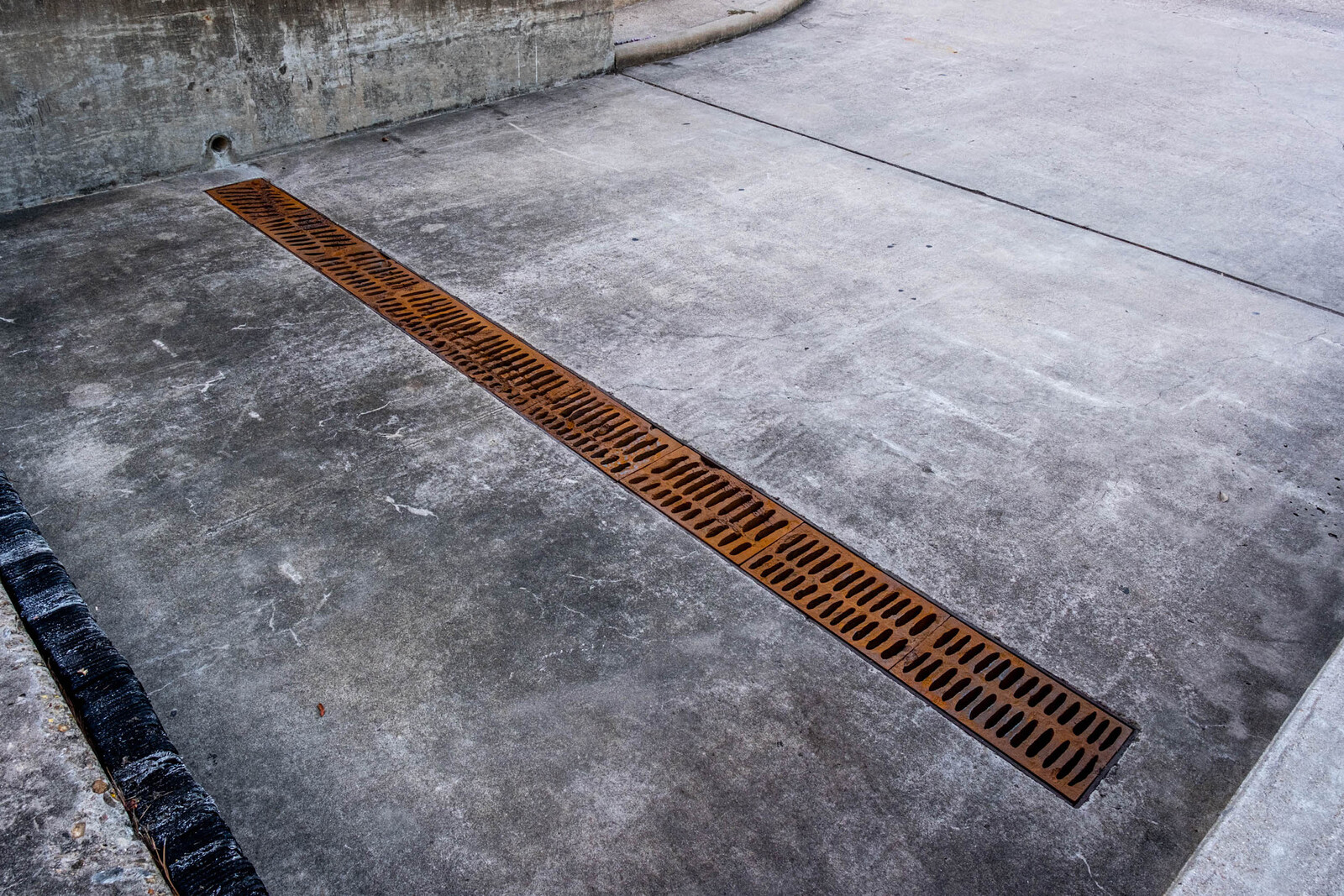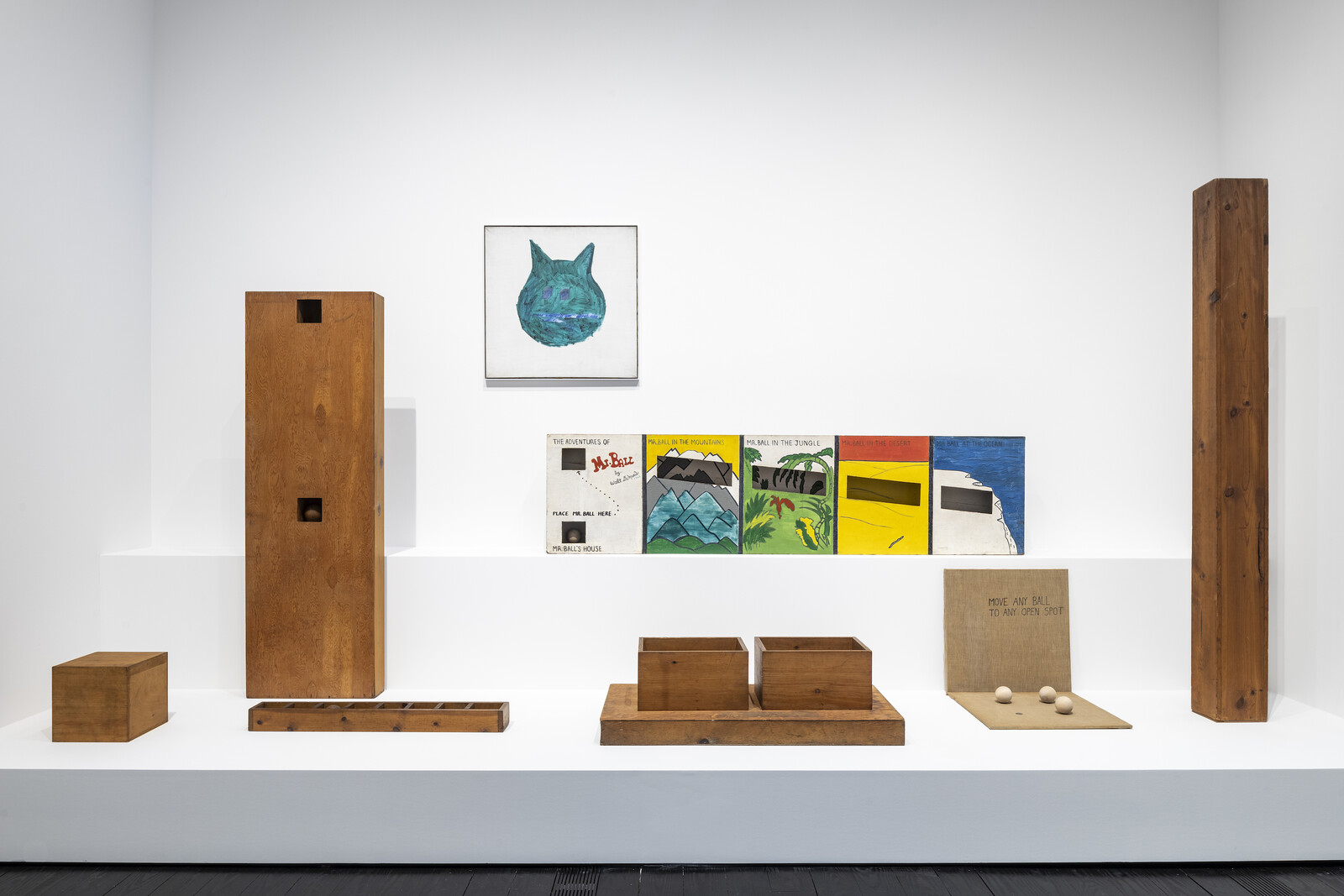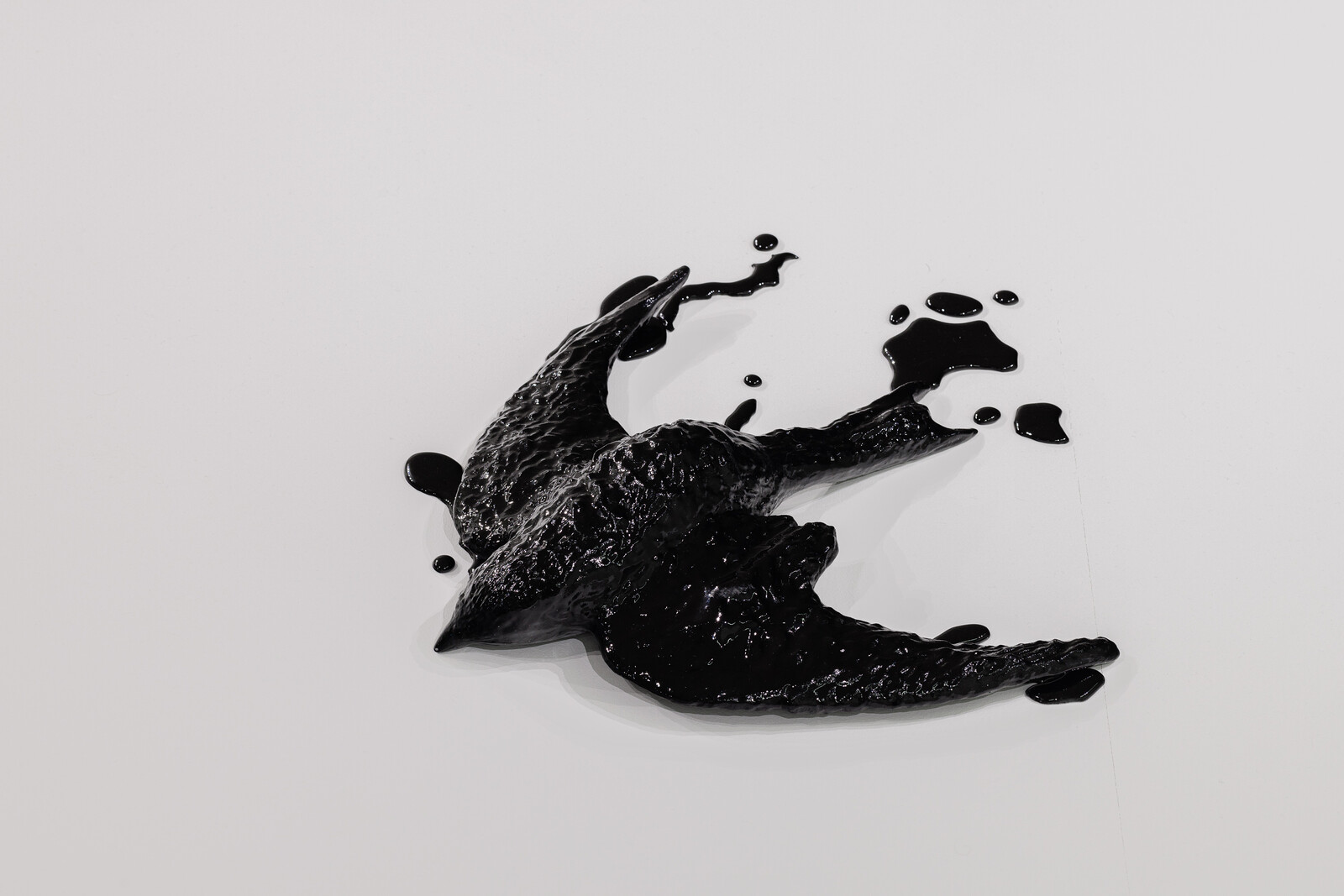Categories
Subjects
Authors
Artists
Venues
Locations
Calendar
Filter
Done
January 16, 2024 – Review
“Intimate confession is a project”
Valentin Diaconov

Curated by Houston-born curator Jennifer Teets, “Intimate confession is a project” looks at what her academic inspirations—Lauren Berlant, Ara Wilson, Kai Bosworth—have called “affective infrastructures.” Here, the phrase denotes a way of thinking through how infrastructures, designed to facilitate the movement of goods and people with maximum efficiency, can produce varied emotional affects. In a catalogue essay, Teets writes that this group exhibition is “informed” by Houston. Here, perhaps more than anywhere else in America, infrastructure is the city: the crumbling roads, the non-existent sidewalks, and the looming if stealthy presence of oil refinement and finance.
The show opens with model houses made from old Bible covers by Chiffon Thomas. Attached to the ceiling over the staircase to the exhibition floor, they hover like ghosts. Thomas was inspired by the neighborhoods of his Chicago childhood, but the shaky silhouettes of these model houses could be Houston’s Third Ward, or any poor community where a church promises a better life perspective than the current economy and policy.
In a transgenerational dialogue the curator’s great-grandmother, Josie Ann Teets, an amateur songwriter, meets a young French artist. Josie Ann wrote and published The Oil King Buggie in 1975. The show contains a notation …
February 3, 2023 – Review
Walter De Maria’s “Boxes for Meaningless Work”
Valentin Diaconov

The Walter De Maria exhibition at the Menil has everything: guns (HARD CORE, a film from 1969, shows Michael Heizer and an actor dueling in the desert), swearing (“Color, Size, Shape, Shit” is number 25 on the list of One Hundred Activities, a score work from 1961), and even the faint possibility of a romantic encounter in the form of a pink mattress and a pair of headphones playing seductive and relaxing field recordings of the Atlantic’s steady breath (Ocean Bed, 1969).
“Boxes for Meaningless Work” does not, of course, contain De Maria’s most iconic pieces—The Lightning Field and New York Earth Room (both 1977). But the show is rich enough to serve as a solemn reminder of what passed as artistic expression in the golden years of American Imperialism, when it was still possible for Minimalists to repackage the formal purity that had denoted universal social progress for Russians and Germans in the 1920s. It is interesting to look at the sea change in relationships between the avant-garde and infrastructure over this period. If the Soviet artist would overreach towards a platonic ideal of a sexless, classless, and ageless society, an approach best exemplified by El Lissitzky’s About Two …
October 27, 2022 – Review
Monira Al Qadiri’s “Refined Vision”
Valentin Diaconov

Kuwaiti artist Monira Al Qadiri is a prophet of doom with an ear for a joke. Sarcasm and puns are hallmarks of her solo exhibition at Houston’s Blaffer Art Museum—starting with its title, which replaces “divine” with a near-homonym that nods to the petroleum industry. Combining pieces made in the last decade with new commissions, “Refined Vision” presents hyper-realistic sculptures alongside installation and video. The tone is uniformly satirical, except for one new piece (Onus, 2022) based on press photographs of dead birds drenched in petroleum. It is the only work to state directly the real-world consequences of the oil industry and, as such, looks a little out of place in an exhibition that revolves around that industry’s enticing iconography.
Spectrum (2016) is a series of 3D-printed sculptures, painted in iridescent car paint, whose shapes are based on the heads of oil drills. Pointing out that oil and pearls share the same color scheme on the opposite side of the dichroic color spectrum, Al Qadiri presents these precious objects as jewels in the crowns of the sovereigns who control oil. Deep time is crucial to Al Qadiri’s analysis of petroleum, and many of her works derive from her absurdist conflation …